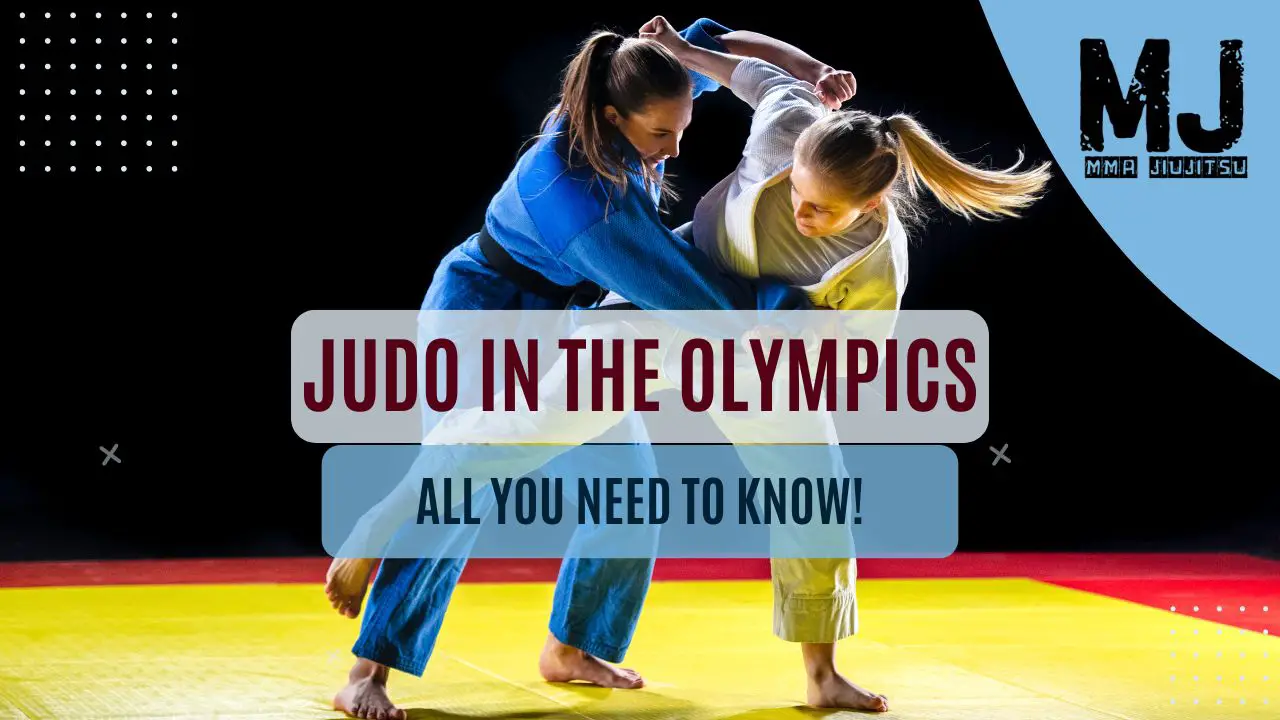Judo is a martial art that emphasizes throws, holds, and joint locks. It was included as an Olympic sport in 1964 during the Tokyo Games.
This guide explores the essence of Olympic Judo, its origins, philosophy, and legendary athletes who have shaped its legacy.
Origins and Philosophy of Judo

Judo is a revered Japanese martial art from the ancient samurai combat technique called jiu-jitsu.
It was founded in 1882 in Tokyo by Dr. Jigoro Kano and translates to “the gentle way” in Japanese.
Despite its name, Judo is a physically demanding sport that involves dynamic grappling and throwing techniques.
Dr. Kano established the first Judo dojo, the Kodokan, with a vision to combine physical, intellectual, and moral education while eliminating the more dangerous aspects of jiu-jitsu.
By the late 20th century, Judo had spread throughout Europe, particularly France. It became the first martial art to gain widespread adoption outside Japan.
History of Judo in the Olympics

Judo debuted in the Olympics in 1964 in Tokyo as a men’s event. By 1972, it had become a permanent fixture in the Olympic program.
Women’s participation in Olympic Judo started in 1992, marking a significant milestone towards gender equality.
Over the years, Judo has seen outstanding performances, including the Tokyo 2020 Games, where Japan secured a record nine gold medals.
Hifumi Abe and Uta Abe became the first brother-sister duo to win gold on the same day in any sport at the Olympics.
The introduction of the mixed team event in 2020 diversified the competition, and each Olympic iteration contributes to the legacy of Judo, demonstrating the evolution of the sport and its athletes.
Olympic Judo Competition Format

Judokas compete in different weight classes in the Olympics to ensure fair and balanced matches. Each country may only send one athlete per weight division.
At the Olympic Games in Paris 2024, judokas will compete for 14 sets of individual medals in various weight classes for both men and women, as detailed below.
| Men Judo Olympic Weight Classes | Women Judo Olympic Weight Classes |
|---|---|
| – 60 kg | – 48 kg |
| – 66 kg | – 52 kg |
| – 73 kg | – 57 kg |
| – 81 kg | – 63 kg |
| – 90 kg | – 70 kg |
| – 100 kg | – 78 kg |
| + 100 kg | +78 kg |
Judokas compete for gold medals in a single elimination event in the Olympics. Winning the fight gives the athlete a direct pass to the next round.
In addition, the quarter-final losers compete for two bronze medals in each weight class. Winners advance to the bronze medal match against the losers in the semifinals.
Olympic Judo Rules and Scoring

Olympic Judo matches are intense and strategic, governed by rules that dictate how points are scored and matches won.
Scores are awarded for throws, holds, and other maneuvers, with an ‘Ippon’ score (akin to a knockout) immediately ending the match.
Penalties, known as “Shido,” can also affect the outcome by penalizing passive or illegal behavior.
Understanding these rules is crucial for appreciating the tactical depth of Olympic Judo.
Spotlight on Olympic Judo Results

Numerous Judokas have left indelible marks on the Olympic mats, including legends such as Anton Geesink and modern heroes like Teddy Riner.
Tokyo 2020
Japan dominated the 2020 Olympic Judo event, winning nine gold medals, an unprecedented achievement.
The Abe siblings, Hifumi and Uta, won gold medals within minutes of each other, a remarkable achievement for a brother-sister duo.
In the mixed team event, the French judo legend Teddy Riner led his team to triumph over Japan and secure the gold medal.

Rio 2016
Kayla Harrison defended her Olympic title by winning another gold medal in the half-heavyweight division in Rio 2016.
Majlinda Kelmendi won Kosovo’s first-ever Olympic medal with a gold in the women’s 52kg division.
London 2012
The 2012 Judo Olympics were memorable for the United States, as Kayla Harrison clinched the first Olympic gold in Judo for her nation.
Marti Malloy added a bronze in the women’s 57kg category, further establishing the U.S. as a competitive force in Olympic Judo.
Beijing 2008
At the 2008 Beijing Olympics, Ronda Rousey won a bronze medal in Judo.
She became the first American woman to medal in the sport since its inclusion for women in the Olympics.
Rousey’s exceptional skills in Judo laid the foundation for her subsequent dominance in mixed martial arts.
Conclusion
Judo, the “gentle way,” has a rich history in Olympic sports. It blends physical strength with strategic thinking and promotes international camaraderie and mutual respect among athletes.
The Olympic platform has elevated Judo’s profile, providing a platform for legendary feats that inspire and ignite passion across generations.
Whether you are a seasoned Judoka, enthusiast, or observer, the Olympic Judo competitions display human endeavor and sportsmanship.
Let us continue to watch, learn, and be inspired as Judo evolves, thrives, and reaches new heights in the Olympic arena.



